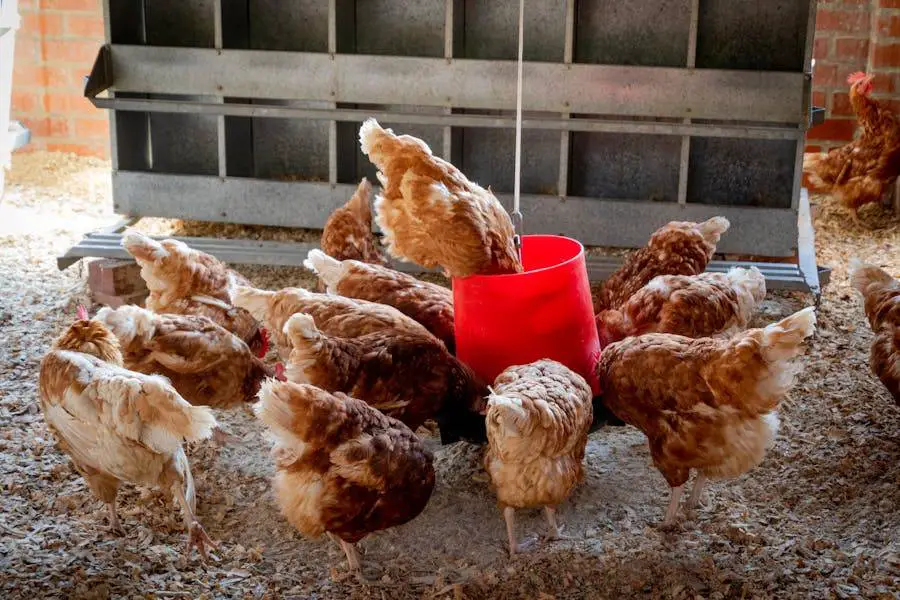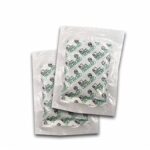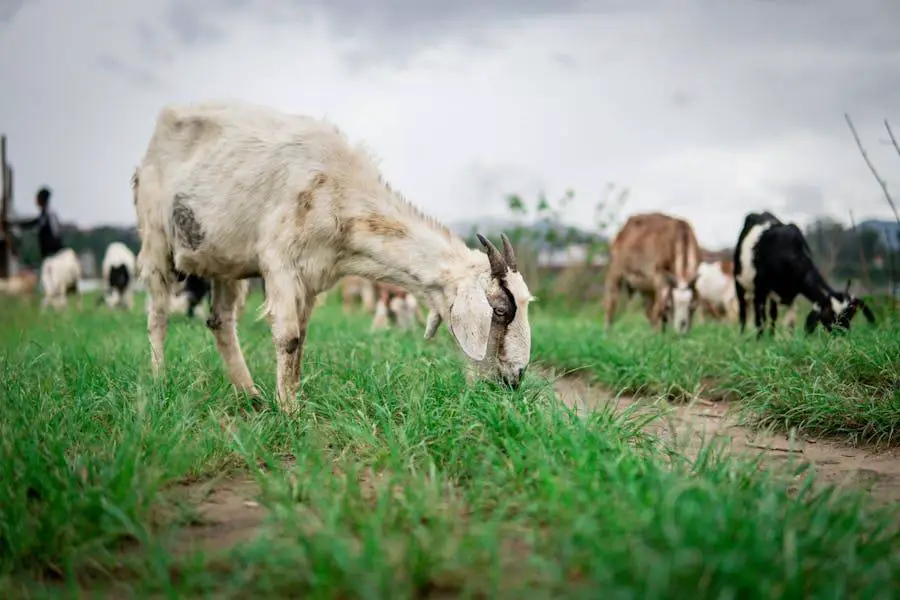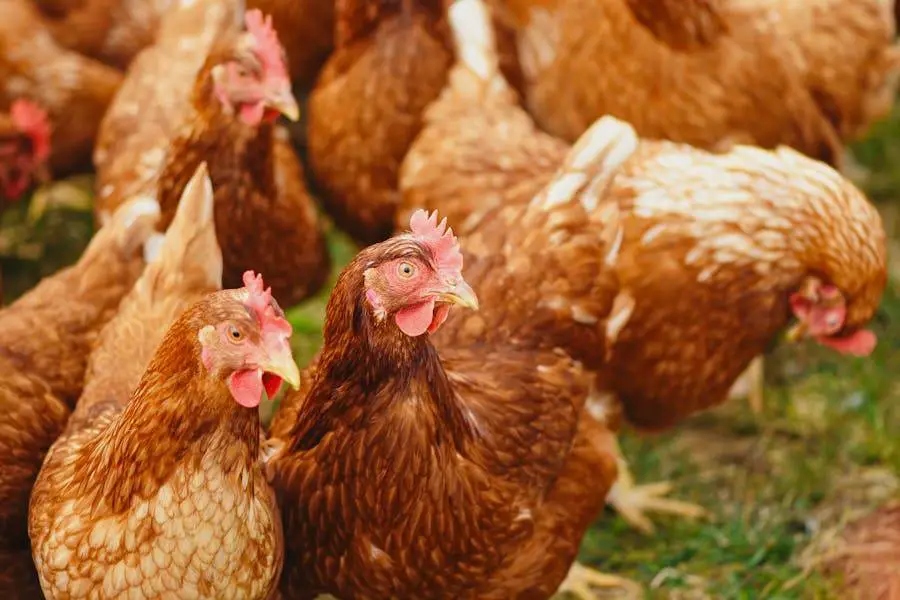Table of Contents
Keeping a chicken run does not just involve feeding and egg collection; it extends to maintaining a clean and healthy environment for the chickens.

A common issue faced by many keepers is controlling the odor that emanates from the chicken run.
Not only can this smell be unpleasant for humans, but it can also create an unhealthy living space for the chickens, possibly leading to diseases.
This guide dives into practical and effective methods to reduce odors in your chicken run, ensuring a fresher atmosphere for both you and your poultry.
Regular Cleaning Schedule
Maintaining a regular cleaning schedule is paramount in controlling odors within the chicken run.
Daily Maintenance
Every day, take the time to remove visible waste and leftover feed from the chicken run. Chickens are messy eaters, and feed left to rot can significantly contribute to the smell.
Implementing simple routines, such as raking the bedding or ground to remove feces and turning over any soil areas, can drastically reduce odor buildup.
These daily tasks prevent the accumulation of waste materials that can decompose and emit strong odors.
Deep Cleaning
Apart from daily upkeep, scheduling a deep cleaning routine is crucial. Once every month or two, depending on the size of your flock and the cleanliness of the run, conduct a thorough cleaning.
This involves removing and replacing all bedding material, scrubbing down any hard surfaces, and ensuring that no waste is left to accumulate in corners or under structures.
Deep cleaning helps to reset the environment, tackling any odors that have started to become embedded in the materials of the chicken run.
Proper Ventilation
Good airflow is essential in keeping a chicken run smelling fresh.
Structural Ventilation
When designing or modifying your chicken run, ensure that it includes features for adequate ventilation.
This can mean incorporating windows or vents that can be opened or closed depending on the weather.
The goal is to allow fresh air to circulate through the run, carrying away moisture and odorous gases.
Natural Air Flow Enhancement
In addition to structural modifications, consider the placement of your chicken run.
Positioning it in an area where it can naturally benefit from prevailing winds will enhance air flow, further aiding in odor reduction.
Avoid placing the run in low-lying areas where air tends to be still and moisture can accumulate.
Moisture Control
Controlling moisture levels within the chicken run is directly linked to odor control.
Drainage Solutions
Implement drainage solutions within and around your chicken run to prevent water from pooling. Standing water not only contributes to odors but also creates a breeding ground for bacteria and parasites.
Ensure that the ground slopes slightly away from the run, facilitating water runoff.
Bedding Management

Choosing the right bedding and managing it properly plays a significant role in moisture and odor control. Materials like wood shavings, straw, or sand are excellent for absorbing moisture.
Regularly add fresh bedding to maintain a dry environment, and remove soiled bedding promptly to prevent the buildup of ammonia and other odors.
Odor-Neutralizing Products
Several products can help neutralize odors without harming your chickens.
Safe Cleaning Agents
For deep cleaning, use safe, non-toxic cleaning agents designed for use in animal environments.
Products containing natural enzymes are particularly effective, as they can break down odor-causing organic material without the use of harsh chemicals.
Natural Odor Absorbers
Incorporate natural odor absorbers, such as baking soda, within the bedding or around the chicken run.
These substances can help neutralize odors without introducing harmful chemicals into the environment.
Diet Management
The diet of your chickens can influence the odor of their waste.
Feed Quality
High-quality feed produces less smelly manure. Look for feeds that are highly digestible with minimal filler content.
A balanced diet not only keeps your chickens healthier but can also lead to less odorous waste.
Proper Feeding Practices
Reduce waste by providing feed in a manner that minimizes spillage. Utilize feeders that keep the feed off the ground, and only offer as much as your chickens can consume in one meal.
Excess feed left on the ground can rot, contributing to the overall smell of the run.
Waste Management System
Efficiently managing waste is critical in odor control.
Efficient Manure Handling
Consider implementing a manure management system, such as a composting bin, where chicken waste can be turned into valuable compost for your garden.
Composting not only reduces waste but also controls the odor by facilitating the breakdown of manure in an environmentally friendly way.
Regular Waste Removal
Ensure that waste is regularly removed from the chicken run. In larger operations, this may mean daily removal, while in smaller setups, a weekly clean might suffice.
The key is to prevent the accumulation of waste that can decay and produce odors.
Landscaping and Planting
The right landscaping and planting can contribute to odor reduction.
Odor-Absorbing Plants
Certain plants are known for their ability to absorb odors. Consider planting these around your chicken run to naturally mitigate smells.
Lavender, mint, and lemon balm not only help control odors but also provide environmental enrichment for your chickens.
Ground Cover Options
Implement ground cover solutions like gravel or wood chips around the perimeter of the chicken run.
These materials help minimize mud, allowing waste to dry more quickly and reducing the potential for odor.
Pecking Order Management
Unresolved aggression among chickens can lead to stress, injury, and increased uncleanliness—all contributing factors to odor problems.
Flock Dynamics Observations

Monitor your flock regularly to identify any signs of bullying or aggression. A stressed and over-pecked chicken may not roost properly, contributing to cleanliness and odor issues.
Introducing New Chickens Carefully
When adding new birds, do so gradually and with care to avoid disruption and stress. Keeping the flock calm and content can indirectly help in maintaining a cleaner and less smelly environment.
Innovative Flooring Solutions
Innovative flooring materials can provide superior moisture and odor control in chicken runs.
Sand Flooring
Sand is an excellent flooring material for chicken runs due to its quick-drying properties and ease of cleaning. It facilitates the drying out of manure and can be easily raked to remove waste.
Permeable Concrete
Though less common, permeable concrete allows water to pass through, preventing the accumulation of moisture and associated odors.
It provides a solid, easy-to-clean surface that can contribute to overall odor management.
Conclusion
Reducing odors in a chicken run requires a multifaceted approach, combining regular cleaning, proper ventilation, moisture control, strategic use of odor-neutralizing products, careful diet management, efficient waste handling, and thoughtful landscaping.
By implementing these methods, you can create a healthier and more pleasant environment for both your chickens and yourself.
Keeping a chicken run odor-free is not only about comfort but also about ensuring the well-being and productivity of your flock.








